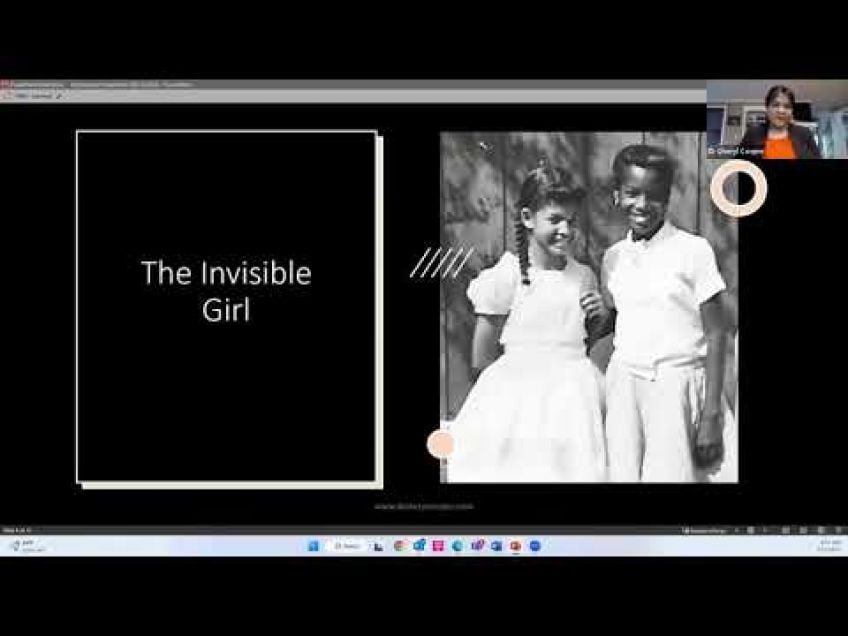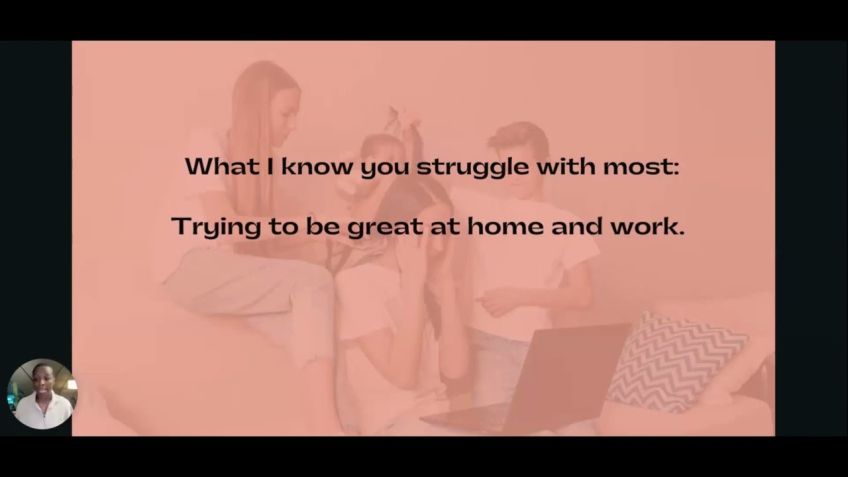Priska Burkard Culture Purpose Match - why you should search for a company that matches your purpose
Finding the Perfect Career: A Culture Purpose match
Introduction: The Focus on Purpose
Priska Burger, the managing director at Tech Face, addresses the importance of finding a company that supports your goals. With an average individual spending approximately 1700 hours per year at work, wouldn’t it be rewarding if your job was not only challenging and rewarding, but also served a higher purpose? “Purpose is quite important for us,” she says. To support this, she recalls a quote from Roy Bennett; “If you have a strong purpose in life, you do not need to be pushed. Your passion will drive you there.”
The search for a job has often been based on matching skills and expertise, with CVs at the center of the search process. The critical aspect of purpose is largely forgotten, leading to the need for a shift in focus.
Defining Purpose
Purpose revolves around three main areas:
- Intrinsic strength: skills and characteristics others see in you. This includes how your colleagues, friends, and family would describe you.
- Interest: Includes the things you enjoy doing and that give you a positive feeling. It is about finding out what activities and areas you are very passionate about.
- Contribution: This involves work that has an impact on the environment and helps others.
Discovering your purpose
Understanding your purpose is a mindful process. You need to consider your vision, skills and values, and what makes you fulfilled and content. For instance, assess the duties and environments that make you happy and energized. Look into the activities that take your time without you even realizing. What are your goals? What do you like to do? What do you dislike?
Understanding Corporate Culture
The culture of a company plays a critical role and is closely tied to its beliefs and behaviors that determine how employees and management interact, both internally and externally. It affects every facet of the business: employees, customers, and the public image and is a key determinant of the effectiveness of a job search.
Finding Culture-Purpose Match in a Job Search
With your purpose defined, it is essential to find where the company culture intersects with your purpose, i.e., where there's a fit. Can you see yourself fitting in this culture as well? This is what is referred to as a culture-purpose match. It highly influences how you stand out in interviews and how you grow and learn in your career. Having a culture-purpose match also ensures you love your job and find a meaning in life.
In conclusion, Priska leaves us with three highlights; Purpose is the key foundation of success, passion and purpose can get you through the fast-changing technological world, and while skills can be learned, passion and purpose cannot. Thus, she emphasizes the need to look beyond the job role and dive deeper into the company’s culture when searching for a job, making the job search journey both effective and fulfilling.
Please feel free to get in touch with Priska on LinkedIn for more insights and career guidance.
Video Transcription
I'm super excited to welcome our next speaker, Priska Burger is a managing director at Tech Face. Hot Talk is Culture Purpose Match. Why you should search for a company that matches your purpose. Hi, Priska, and welcome.
Hello. Thanks a lot. Let me quickly um get my screen up for the presentation. I
will leave the stage
to you. Thanks a lot for the introduction. Ana um as mentioned, I hope you see all my slides now um because I can't see it anymore. But thanks a lot for having me here. And um uh my name is Priska. I'm the co-founder of tech face and we at Tech Face, we strongly believe in finding a meaningful career. And why is this? Well, we spent the vast majority of our, our lives of our waking hours at work to be precise. This is 1700 hours a year or even more if you work full time. Well, isn't it important then to strive for a career that is meaningful, intellectually, challenging and highly rewarding. And what if you could find a job that enables you to help others to promote positive change and to serve a higher purpose. So you see, purpose is quite important for us. And I'd like to refer to a quote from Roy Bennett here. If you have a strong purpose in life, you don't have to be pushed, your passion will drive you there. And that is super important in your career and your job especially. So, purpose is important. But if you look at the current situation, how we search for jobs, do we really search for a purposeful job? Today? We use CV S and we base it on skills and expertise.
We explain maybe a little bit what we are um looking for, what kind of goals we are looking for in our career. But there is no mentioning of purpose. Then we go to job search platforms, we look for jobs, we look for jobs that matches our skills and expertise, but there is no purpose involved. Then we upload sometimes our CV S to A I and power tools, big corporations are working with them. They are all data driven. And again, where is the purpose in this process? So we are missing the purpose here. But when we talk about purpose, what are we actually talking about? Purpose is based on three different areas. First of all, intrinsic strength, we're talking about skills and characteristics that others see in you ask your family, your friends, your colleagues, how would they describe you? What kind of skills define you? Then we have the area of interest, we have activities, areas you're very interested in and things that give you a positive feeling. And last but not least it's the contribution. It's the work that has an impact on the environment where you feel happy about and where you can help others. So these are three areas that builds the meaning of purpose. But the question now is how can you define purpose for yourself?
And I would like to give you some guidance here that helps you to define the purpose. First of all, look at your vision, ask yourself what is actually making me happy? When do I feel content and fulfilled? What are the, the tasks, the environment where I feel this and most of all, where do I see myself? How can I picture myself in a work in an environment in a job where I feel happy where I feel content and fulfilled, empowered and energized. Another part is your skills. Ask yourself, what do I like to do? Have you ever experienced this situation where you're working on something? And you felt very motivated and you completely forgot about time. It's three hours later and you're like, oh my God, where has the time gone?
But at the same time, it's also too important to understand what you don't like about it. What are the tasks and, and work you do you don't like. And the last part is the values, what is actually important for you? What situation can't you deal with or what bothers you. What do you need on a daily basis? This defines all your values. That is important part of the purpose definition. So now we have defined purpose and believe me, you're not going to do it in five minutes. It will take some time. You have to sit down, you have to put some effort into it some time to think about. You might take a couple of days to revisit and think if this is really what defines you, how you would define purpose for yourself. But that's just the first part. The question now is how can you find a job that is aligned with your purpose? And here, it's not actually the job that plays a big role. It is the culture that is important. And we talk, when we talk about culture, the corporate culture, I'd like to quickly have this definition um pointed out which refers to beliefs and behaviors that determine how companies employees and management interact and handle outside. We know out inside a company, how they work with each other.
But we also talk about how a company is seen outside and is working with clients or partners. And why is the corporate culture important? Well, it actually affects every aspect of the business from employees to customer to public image. So it affects on how people work with each other, how team is set up how management communicates with their employees, but also what kind of um clients, they're working with, how do they interact with clients? And then of course, the public image, what do people see in this company? What do they understand this company is about? And you might think now. Well, yes, it's, of course, it's important uh to understand the corporate culture. But how do I find out the corporate culture if I don't work there? This is only possible when I work there and this is maybe true, but there are tools that will help you today already to find out what corporate culture is about at the end of the day and to understand the corporate culture that different areas you can investigate. And the beauty of it is with the technology we have today, you can investigate that with at your fingertip with tools at your fingertips. So the first part you can look at is the vision and mission of a company and that's quite easy.
You just go to the website and find out what they're talking about. Do they talk about vision and mission at all? It's kind of astonishing to see that there's still um companies out there. They don't define their vision mission. But this is quite important to understand where does the corporate culture or where does the company see themselves? Where do they strive, what do they strive for? Where do they want to go? And then another part of it is also the values of a company, what are they putting into the focus, is it more their products, the services or is it even their employees or their clients, their partners? What are the values of the company? And then the next part are the employees. And from my perspective, employees is the most important part of a corporate culture because they are the ones who define the corporate culture. So spend some time understanding who is actually working there. And the first part is again on the website, you can look out if they introduce their employees or is it just the management they are talking about? And in what kind of way do they introduce employees? Are they telling their stories or just what they have done for the company? And then of course, there is linkedin, which will be very helpful to understand more about the employees. Check out the company on linkedin who is working there. Who are these people? Are they very diverse?
Are they all having the same background? Um Are they talking about the company in their own posts? And how do they talk about the company? Are they proud to be working there or are they not posting anything about the company at all? Are they switching a lot? Meaning just staying a few months or years there and leaving again? Then another part is the brand and this is what I mentioned before, how they are perceived from the outside here. You can of course, search some websites where you can give um, ratings or information like Gloucester about the company, but you can also talk to your friends, families and colleagues from people working in the same industry. What do they know about the company? How is the brand perceived?
Are they a big name, a small name or they perceived as a very good company or not? So, so you can find out by just talking to people as well. Communication is also a quite important part when looking into the culture. And of course, it's a communication inside which is not that easy to find out or to understand. But what you can investigate is how they communicate to the outside, check out their social media profiles and channels, how do they communicate in their posts? What kind of language are they using? Is it more young, fresh or conservative traditional? Who do they speak to? Are they speaking more to their clients, to employees to potential employees? These are all kind of signs that helps you to understand the communication and last, but for sure, not least are the clients who is working with this company? Are they only the big traditional companies or do they have a lot of diverse companies from smaller big companies? Are they having start ups in their portfolio as well? And then also find out how do clients talk about the company? Are they saying things like, oh great products and services or are they talking about their employees saying Well, they helped us tremendous to reach our business goals.
What is the way they talk about the company, which gives you a great insight about culture. So now we have defined your purpose and we have defined the culture. And again, don't expect this to be done in five minutes. It might take a couple of hours to investigate the culture of company. But it is quite important at the end of the day for your career because now we are at the point where we align your purpose with the culture. So take your definition of purpose and put it next to the culture definition and try to see where is there an overlap? Where is there a fit? Can you see yourself in this culture as well? Sometimes you see something in the culture and you feel, oh, that's great. But then you refer back to your, to your purpose and you see, well, maybe it's not what I really want in life. And this is quite important now to have this pur purpose culture match because it affects different areas in your life. And the first one is of course, when you get invited to an interview for the company, keep in mind today in today's world, it's not only you who is interviewed by a company, you are equally interviewing the company as well. Companies are are applying for talents, it's not only talents applying for jobs. So you have to prepare your question to find out who is this company? What is the culture?
And when you investigate the culture, you might find some discrepancies and you might find things that you're not sure about. So define your question before you go into the interview. This also helps you to stand out from the rest of the appli applicants because the company will realize the interviewees will realize you have spent some time understanding the company. There is some interest from your side as well to really work with this company. Then the second part is of course your career, you want to work in an environment that is that is enabling you to learn and grow to pursue a career that brings you further. And this is really only possible if you have this environment if you have a team that supports you and guess what if you have a shared vision and mission? If you have the same purpose, this team will enable you to grow and to learn. And then last, but not least we're coming back to life. You want to feel happy in life, you want to be energized, empowered, inspired and mostly you want to love what you do and you want to find meaning in your life. And this is only possible when you can use your purpose in your daily life. And as we learned in the beginning, as you spend a lot of time in work, it is important that you can find your purpose at work again.
So you see purpose and culture is quite important for your career. And let me go now to the question which is um part of this talk or basically the title of the task, why we should search for culture, purpose match when we search for a job, when we search for a career. And here are three points. I'd like to really highlight. First of all, purpose is the foundation of success. Everything you do with pers purpose will be successful, it will be successful for you. So never forget about this part. The next part is if you look at our world today, our working world and the technology, things are changing so quickly, we just experienced this recently with the pandemic where we had a lot of people had all of a sudden work from home and there were new skills required, a new task, had to be done.
Roles and tasks are changing. But what does not change is your passion and your purpose for a culture for a company. So if you have a company where you really match with passion and purpose, the company will see this and if your role changes and your task changes, they will enable you to change with it. It's not the case that you have to go and find a new job after two years because things have changed the company, they want to keep you because there is a match in purpose and they will help you to learn new skills. And this brings me to the last point that a lot of skills can be learned. They don't need to be known from the beginning. But the passion and purpose cannot be learned this found basic and that helps you to develop yourself in your process, in your career. So for me having a cultural purpose match in your career is the most important thing. So maybe next time when you start searching for a job, you might find a job on the job platform. But before you apply, go into the company and find out what is the culture and does the culture really fit your purpose? And this is where you find the perfect career for you that helps you to grow, learn and develop.
And I think we have a couple of minutes left to uh answer some questions. So I'm gonna stop sharing my screen and I should be able to answer some questions as well.
Hey, hi. Hello. Let's take some questions from the audience. Please go ahead and because many people are writing in the chat and they are thanking you. How can you elaborate about passion which remains passion actually can change over
time? Yes, absolutely. But it's not something that changes every other day and your passion will be adjusted or changed because of your lifestyle changes. So for example, you start having a family, then your passion will change a little bit. But there is always the same basic.
For example, you don't have a passion all of a sudden for the environment and, and two years later, you don't bother anymore. These are things that stick with you in one way or the other. Sometimes maybe a bit stronger, sometimes a bit less, right?
Thank you very much, Priska. Thanks a lot for your very informative and interesting talk for sharing your insights, your experience and very useful content with our audience. I'm wishing you a great day.
Thanks. And then please feel free, feel free to connect with me on linkedin as well and follow that place if you want to have some more information about it and on linkedin. Yeah. Thanks. Thanks a lot and uh good luck with the rest of the. Thank you. Thank you.
Thank you. Bye.





